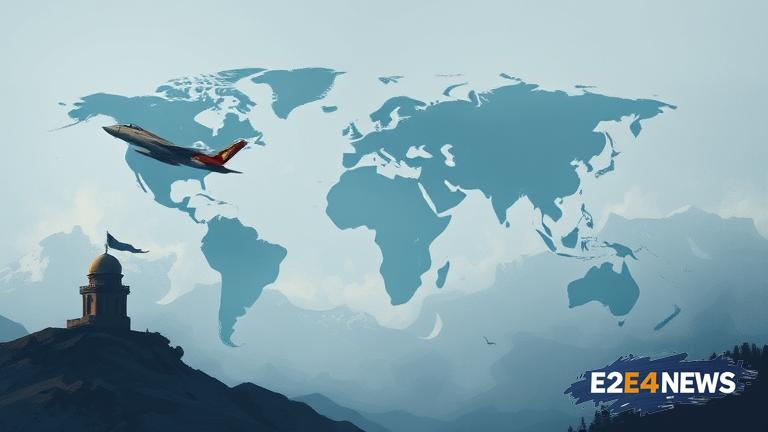The world is at a critical juncture, with various factors contributing to a perfect storm that threatens global stability and peace. The rise of authoritarian regimes, nuclear proliferation, and climate change are just a few of the pressing issues that demand immediate attention. The spread of authoritarianism, for instance, has led to a decline in democratic values and human rights, with many countries experiencing a significant erosion of civil liberties. This trend is particularly concerning, as it undermines the very foundations of democracy and the rule of law. Furthermore, the proliferation of nuclear weapons poses a significant threat to global security, with the potential for catastrophic consequences in the event of a nuclear conflict. Climate change, meanwhile, continues to wreak havoc on the environment, with devastating impacts on ecosystems, economies, and human societies. The consequences of inaction will be severe, with rising sea levels, more frequent natural disasters, and unpredictable weather patterns becoming the new norm. In addition to these global challenges, the world is also grappling with the aftermath of the COVID-19 pandemic, which has exposed deep-seated vulnerabilities in healthcare systems, economies, and societies. The pandemic has also accelerated the shift towards a more digital and interconnected world, with all its attendant benefits and risks. As the world becomes increasingly interconnected, the potential for cyber threats, disinformation, and propaganda to undermine global stability has grown exponentially. The free world must come together to address these challenges, through a combination of diplomacy, cooperation, and collective action. This will require a renewed commitment to democratic values, human rights, and the rule of law, as well as a willingness to invest in sustainable development, climate resilience, and global health security. The United States, as a global leader, has a critical role to play in shaping the international response to these challenges. However, the country’s own democratic institutions are facing significant challenges, with rising polarization, disinformation, and partisan gridlock threatening to undermine the very foundations of American democracy. The international community must also come together to address the root causes of conflict, including poverty, inequality, and social injustice. This will require a sustained commitment to development, diplomacy, and peacebuilding, as well as a willingness to engage in difficult conversations about the distribution of power, resources, and opportunities. Ultimately, the future of global stability and peace will depend on the ability of nations to work together, to find common ground, and to build a more just, equitable, and sustainable world. The stakes are high, but the potential rewards are great, and the free world must rise to the challenge. The world is at a crossroads, and the choices we make today will shape the course of history for generations to come. It is time for leaders to put aside their differences, to work towards a common purpose, and to build a brighter future for all. The real risk to the free world and peace is not just the external threats, but also the internal weaknesses and divisions that threaten to undermine our collective ability to respond to these challenges. We must recognize the interconnectedness of these challenges and work towards a comprehensive and integrated response. The future of global stability and peace depends on our ability to work together, to find common ground, and to build a more just, equitable, and sustainable world. The time for action is now, and the world is waiting for leaders to rise to the challenge. The consequences of inaction will be severe, and the world will be forever changed by the choices we make today. The free world must come together to address the challenges of the 21st century, and to build a brighter future for all. The real risk to the free world and peace is not just the external threats, but also the internal weaknesses and divisions that threaten to undermine our collective ability to respond to these challenges. We must recognize the interconnectedness of these challenges and work towards a comprehensive and integrated response. The world is at a critical juncture, and the choices we make today will shape the course of history for generations to come.
